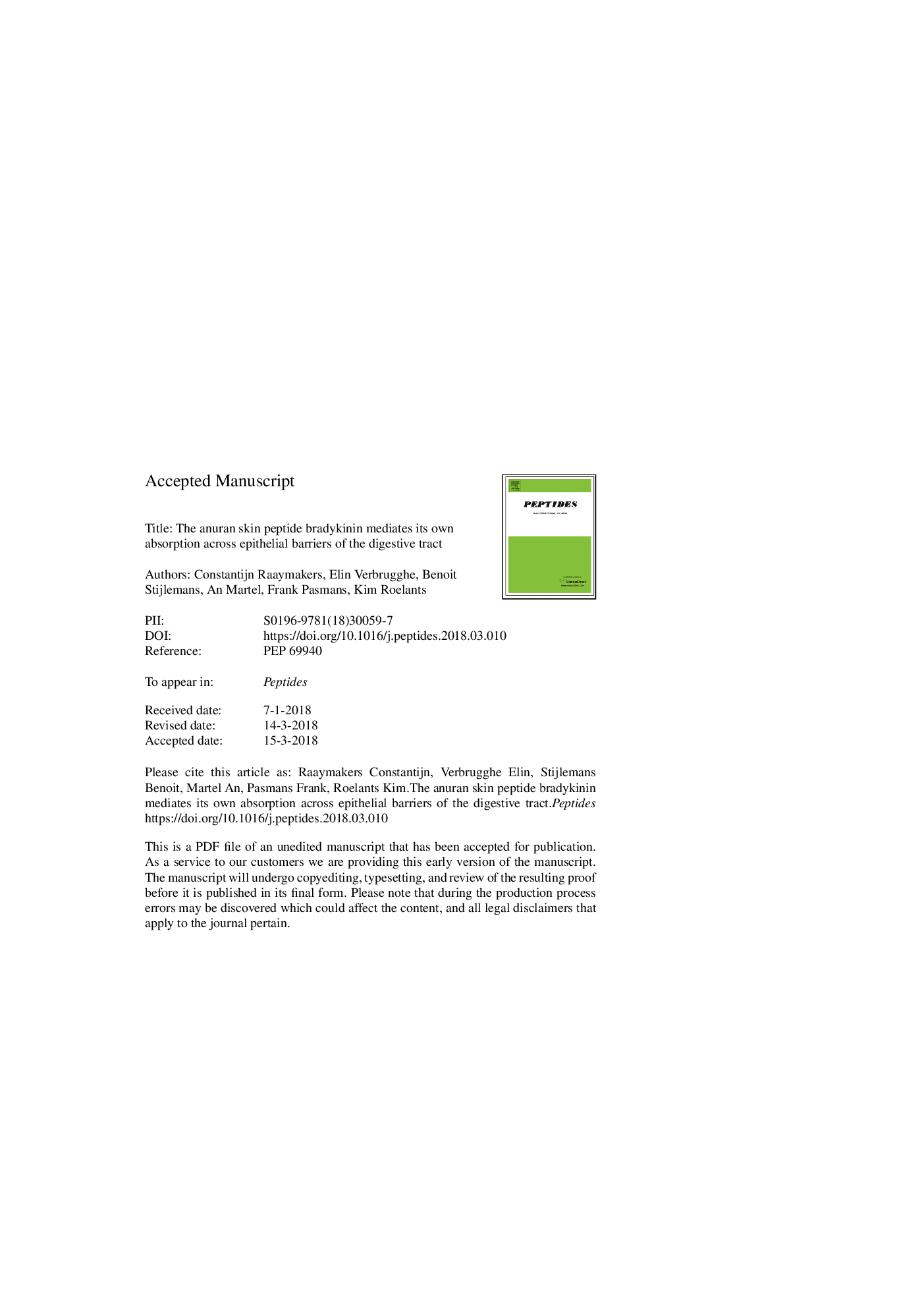| کد مقاله | کد نشریه | سال انتشار | مقاله انگلیسی | نسخه تمام متن |
|---|---|---|---|---|
| 8347336 | 1541676 | 2018 | 17 صفحه PDF | دانلود رایگان |
عنوان انگلیسی مقاله ISI
The anuran skin peptide bradykinin mediates its own absorption across epithelial barriers of the digestive tract
ترجمه فارسی عنوان
برادیکینین پپتیدهای پوست انوران جذب خود را در سراسر موانع اپیتلیال دستگاه گوارش را متاثر می کند
دانلود مقاله + سفارش ترجمه
دانلود مقاله ISI انگلیسی
رایگان برای ایرانیان
کلمات کلیدی
برادیکینین، دوزیستان، موانع اپیتلیال، پپتیدهای ضد میکروبی، جذب سم پپتید،
موضوعات مرتبط
علوم زیستی و بیوفناوری
بیوشیمی، ژنتیک و زیست شناسی مولکولی
زیست شیمی
چکیده انگلیسی
When faced with a potential predator, a wide range of frog species secrete a mixture of peptide toxins from their skin to defend themselves. We have recently shown that antimicrobial peptides (AMPs) in a frog's defensive poison enhance the uptake of these peptides across epithelia, thereby speeding up the process of predator intoxication. This study provides evidence that bradykinin, a widespread peptide toxin in anurans (frogs), is capable to pass through epithelial barriers independent of this delivery system. We quantified bradykinin peptides secreted by Bombina orientalis during acute stress, and found that at biologically relevant concentrations, bradykinin passage across model epithelia occurs even in the absence of AMPs. Monitoring of transepithelial electric resistance showed that bradykinin treatment caused a subtle yet prolonged reduction in barrier function, indicating that the peptide itself is capable to increase the permeability of epithelia. Yet, bradykinin does not cause cells to leak lactate dehydrogenase, suggesting that it does not damage cell membranes. Moreover, imaging of bradykinin-treated monolayers shows no endocytosis of fluorescent propidium iodide, indicating that the peptide does not perforate cell membranes at smaller scale and therefore is unlikely to cross epithelia via a transcellular passage. Together, these observations suggest that bradykinin, unlike other amphibian neuropeptide toxins, mediates its own passage across mucosal barriers, possibly through a paracellular route. This “self-administering” property, combined with the fact that bradykinins can potently disturb multiple physiological processes, could explain why these peptides are one of the most widespread antipredator peptides in the defensive secretions of frogs.
ناشر
Database: Elsevier - ScienceDirect (ساینس دایرکت)
Journal: Peptides - Volume 103, May 2018, Pages 84-89
Journal: Peptides - Volume 103, May 2018, Pages 84-89
نویسندگان
Constantijn Raaymakers, Elin Verbrugghe, Benoit Stijlemans, An Martel, Frank Pasmans, Kim Roelants,
